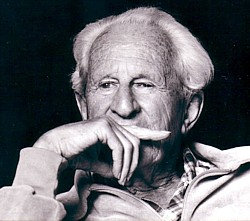Brian Gonsalves Bio
Gonsalves, Brian (b. ca. 1979). Avid reader with interest in philosophy. Works
as a security guard in Orange county.
- Registered the domain name herbertmarcuse.com, which
was basically a page of links. The Internet
archive has copies from Sept. 2001 to Sept. 2004.
- His gonsalves.org website (2009 web archive version) included
an autobiographical essay
in which Brian wrote the following:
"The last time that literature induced a major shift in my world view
was 1999; during a brief respite from my depression I first tackled the
philosopher Herbert Marcuse. Associated with the neo-Marxist Frankfurt
School, Marcuse was extremely influential upon the radical Left in the
1960�s. His philosophy is a highly original synthesis of Hegel, Marx, and
Freud. A materialist aestheticism permeates his thought (perhaps this is
what attracted me to it) and yet in his analysis of both society and the
individual there is much depth. Though he is primarily concerned with the
beautiful, the true and the good are not neglected to the extent that they
are in Nietzsche. Marcuse changed my way of thinking by directing my attention
toward the social organism. After years of blind individualism I had forgotten
that I too was part of society and that many of my own problems were of
a universal nature. In Eros and Civilization Marcuse draws attention to
the fact that society demands of its members a level of repression over
and above what is needed to defeat scarcity and provide for the commonweal.
Technology has made feasible a drastic reduction of the amount of overall
labor engaged in by man, opening up the utopian possibility of a society
based around leisure and play. Nevertheless, the culture of toil is perpetuated
by an obsolete work ethic and by the manufacture of false needs through
advertising. People must continue to work full-time in order to buy mass-advertised
gadgets and luxury items. This over-consumption is fostered so as to support
the over-production which keeps everyone working. The absurdities of advanced
capitalism are further explored in Marcuse�s second great work, One-Dimensional
Man. The book�s central point is that modern society�s totalitarian nature
almost excludes the possibility of there arising any genuine opposition
to it. The proletariat, stupefied by mass media, has itself become a counter-revolutionary
force. High art, once a gateway to an alternative dimension, has lost its
transcendental quality through being commercialized. Philosophy also has
lost its ability to oppose society as critical thought forms (as in Hegel
and Marx) have given way to a shallow positivism. Writing in the late sixties,
Marcuse did see a viable oppositional force in the student radicals. He
quickly became their guru.
As I recognized that Eros and Civilization and One-Dimensional Man were
thoroughly applicable to the 1990�s I became angry. Less and less did I
feel guilty about not fitting into this society. More did my alienation
make me determined to fight the establishment. My chance came in December
1999 with the convention of the World Trade Organization in Seattle. I
caught a bus to the city and joined thousands of people protesting the
order of global corporate capitalism. In all honesty it was exhilarating
to take part in that small piece of history. When I got home, however,
my enthusiasm waned. Neither Herbert Marcuse nor memories of Seattle could
keep me from slipping back into my usual depression."
